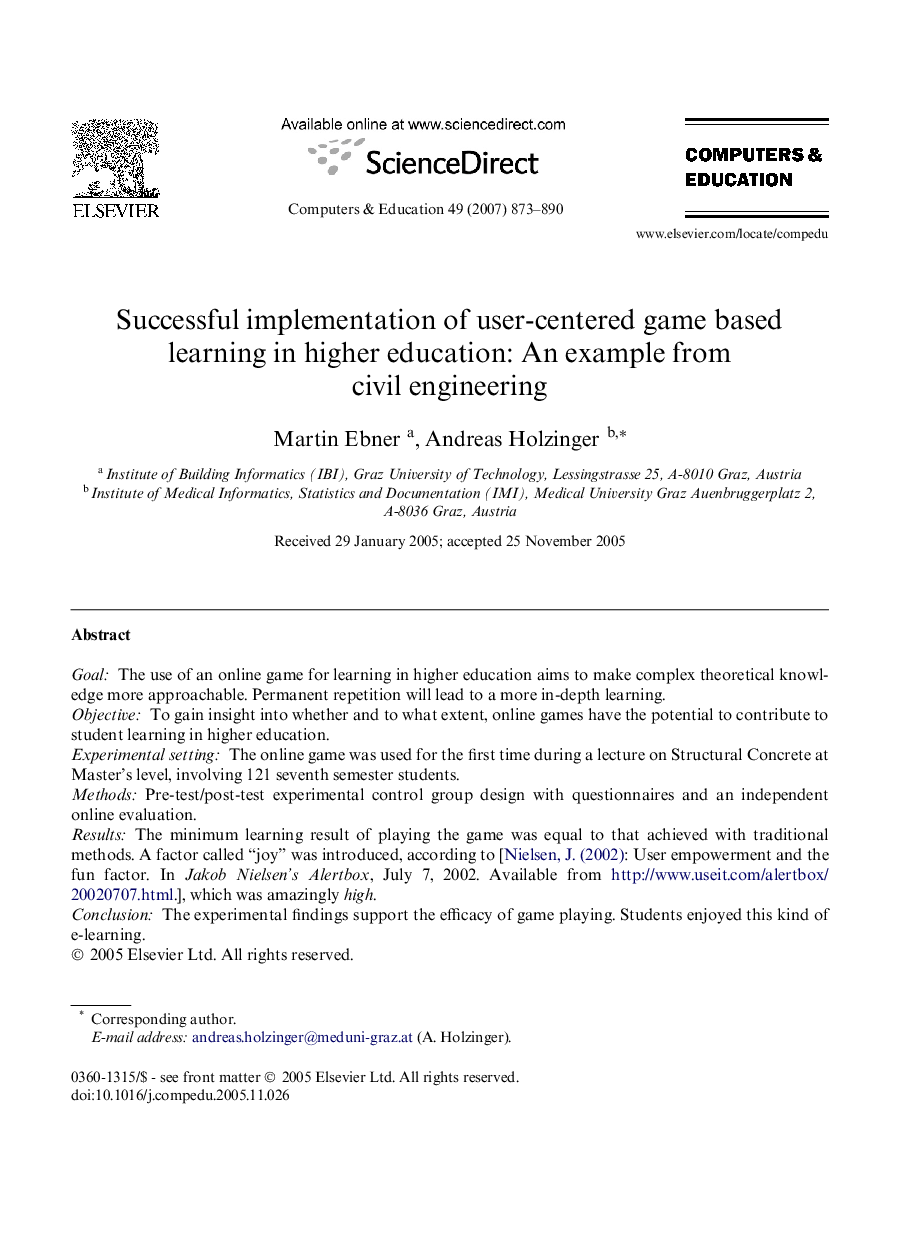| Article ID | Journal | Published Year | Pages | File Type |
|---|---|---|---|---|
| 349968 | Computers & Education | 2007 | 18 Pages |
GoalThe use of an online game for learning in higher education aims to make complex theoretical knowledge more approachable. Permanent repetition will lead to a more in-depth learning.ObjectiveTo gain insight into whether and to what extent, online games have the potential to contribute to student learning in higher education.Experimental settingThe online game was used for the first time during a lecture on Structural Concrete at Master’s level, involving 121 seventh semester students.MethodsPre-test/post-test experimental control group design with questionnaires and an independent online evaluation.ResultsThe minimum learning result of playing the game was equal to that achieved with traditional methods. A factor called “joy” was introduced, according to [Nielsen, J. (2002): User empowerment and the fun factor. In Jakob Nielsen’s Alertbox, July 7, 2002. Available from http://www.useit.com/alertbox/20020707.html.], which was amazingly high.ConclusionThe experimental findings support the efficacy of game playing. Students enjoyed this kind of e-learning.
